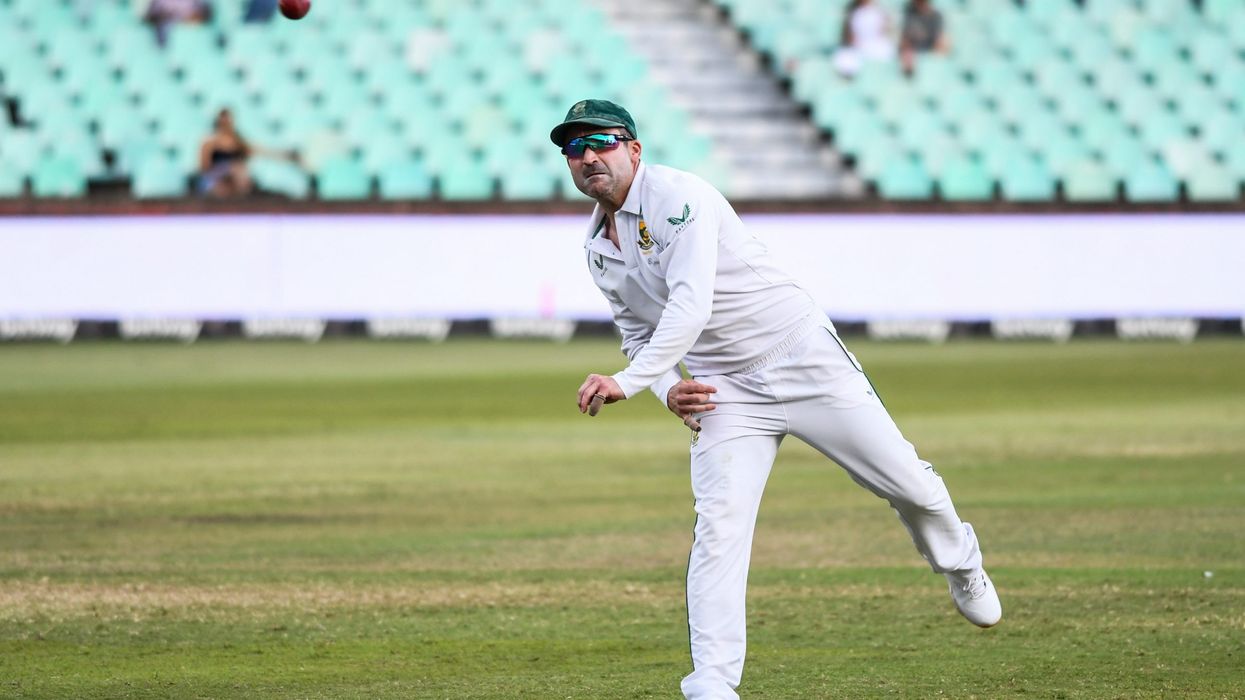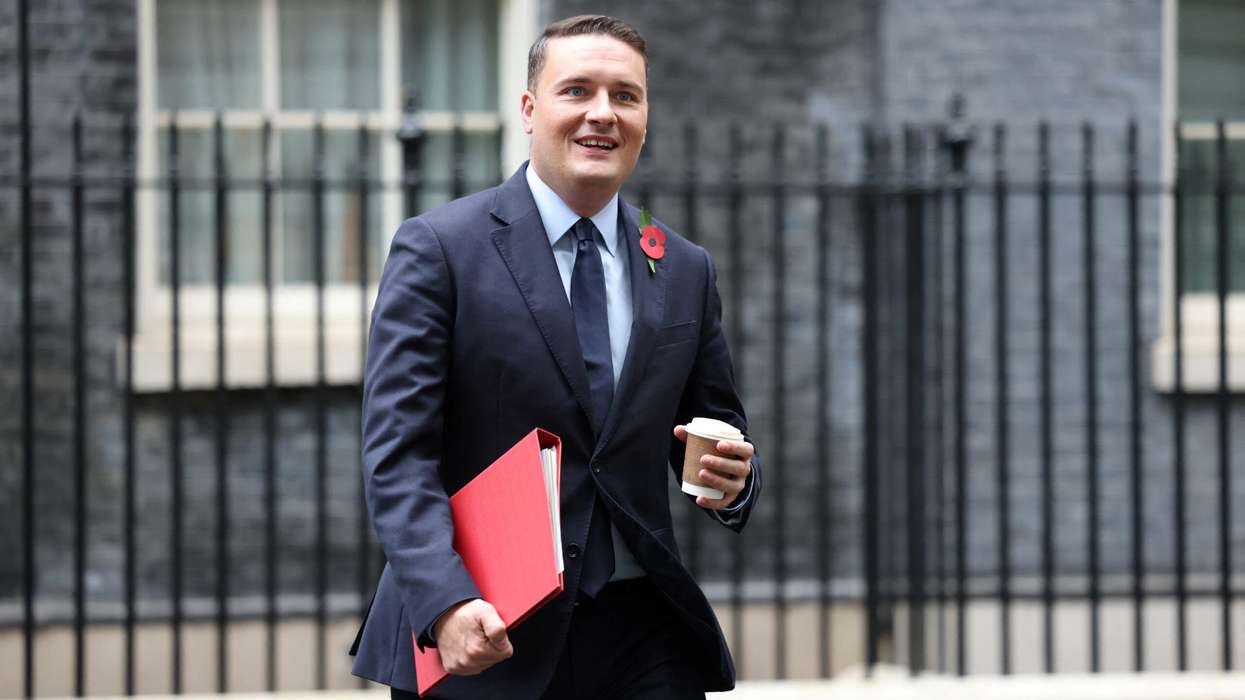Spin bowling won the first Test for South Africa against Bangladesh at Kingsmead on Monday, but captain Dean Elgar said he still preferred to attack opponents with fast bowling.
Left-arm spinner Keshav Maharaj and off-spinner Simon Harmer bowled unchanged as Bangladesh crashed to 53 all out, giving South Africa a 220-run victory.
Maharaj took seven for 32 and Harmer claimed three for 21 as Bangladesh’s last seven wickets tumbled in only 55 minutes on Monday morning.
South Africa were without their entire front-line fast bowling attack, with Kagiso Rabada, Lungi Ngidi, Anrich Nortje and Marco Jansen all contracted to Indian Premier League teams.
Elgar said the conditions at Kingsmead dictated the spin option.
“Even if the IPL guys were available, Keshav and Harmy would have bowled most of our overs,” said Elgar.
Elgar praised “the pure skill level and intensity and consistency” of the two spinners, who took a combined 14 wickets in the match.
But he added: “It’s not the style of cricket we’re used to, or that we want to play. I think it shows a lot of character … that we have the resources to adapt.
“We still want to play the conditions where you play three seamers, an all-rounder and a spinner. Fast bowling is our prime source of attack.”
Bangladesh captain Mominul Haque appeared to be baffled by the way his batsmen collapsed against a style of bowling they are used to.
“We are used to playing spin in Bangladesh and we also know that (in) Durban the spinners work,” he said at the post-match presentation.
Mominul said Bangladesh had batted “really well” in the first innings when they made 298 but had played too many loose shots in the second innings and had failed to build partnerships.
Mominul said losing three wickets for 11 runs in the closing overs on Sunday had been crucial. “We didn’t look for the result, we just tried to play the last session. Unfortunately we lost three wickets.”
The Bangladesh captain defended his decision to send South Africa in to bat after winning the toss. “Our fast bowlers have been doing very well and there was moisture in the wicket.”
Mominul praised the effort of his bowlers in both innings but said allowing South Africa’s last two wickets to add 69 runs in the first innings had proved costly.
Elgar said his decision to open the bowling with two spinners on Sunday evening tied in with his style of captaincy.
“I’m trying to expose our players and to get them familiar to the way I want to play Test cricket. It is about playing positive, ruthless cricket, making bold, rash decisions and putting players out of their comfort zones. That was purely a gut feel of mine.”
Elgar said, though, that South Africa’s batting in the second innings, when they were bowled out for 204, lacked intensity.
“Test cricket demands intensity whether you’ve got bat in hand or ball in hand. Maybe it was the inexperience of players not quite familiar with that role. Now the guys have experienced a taste of Test cricket and what it demands.”
The second and final Test starts in Gqeberha, formerly Port Elizabeth, on Friday.




